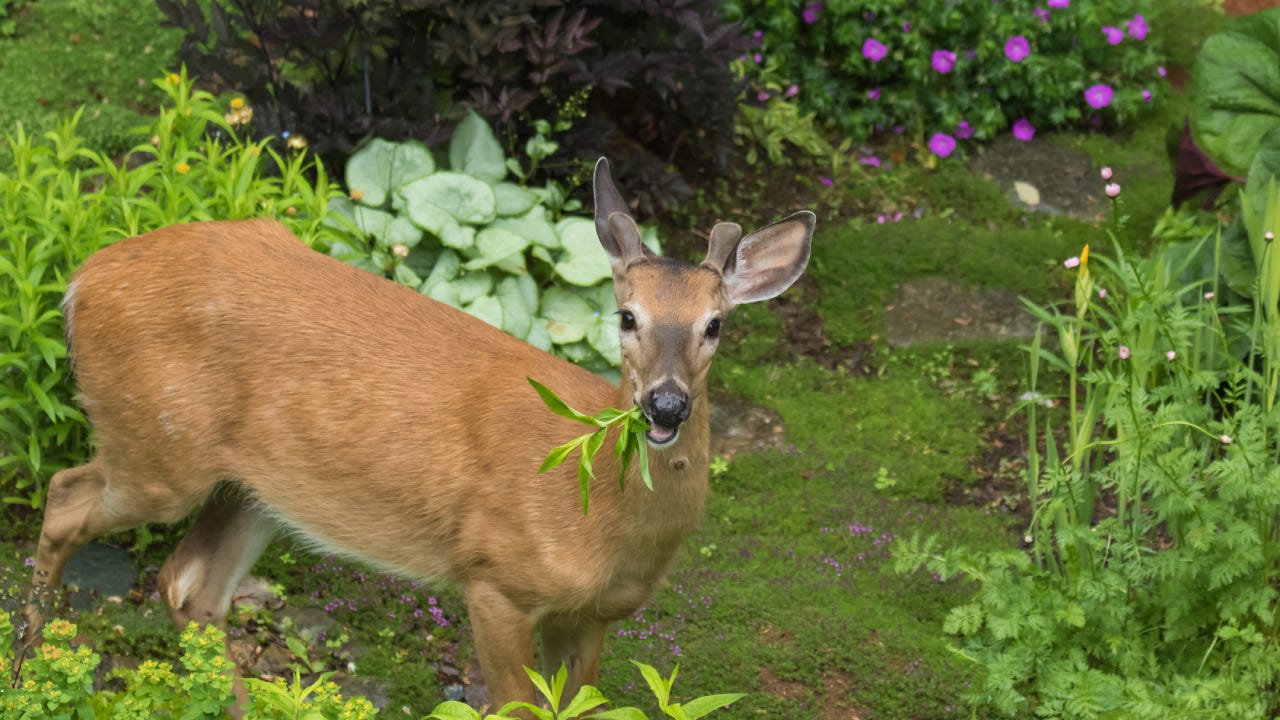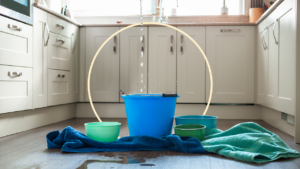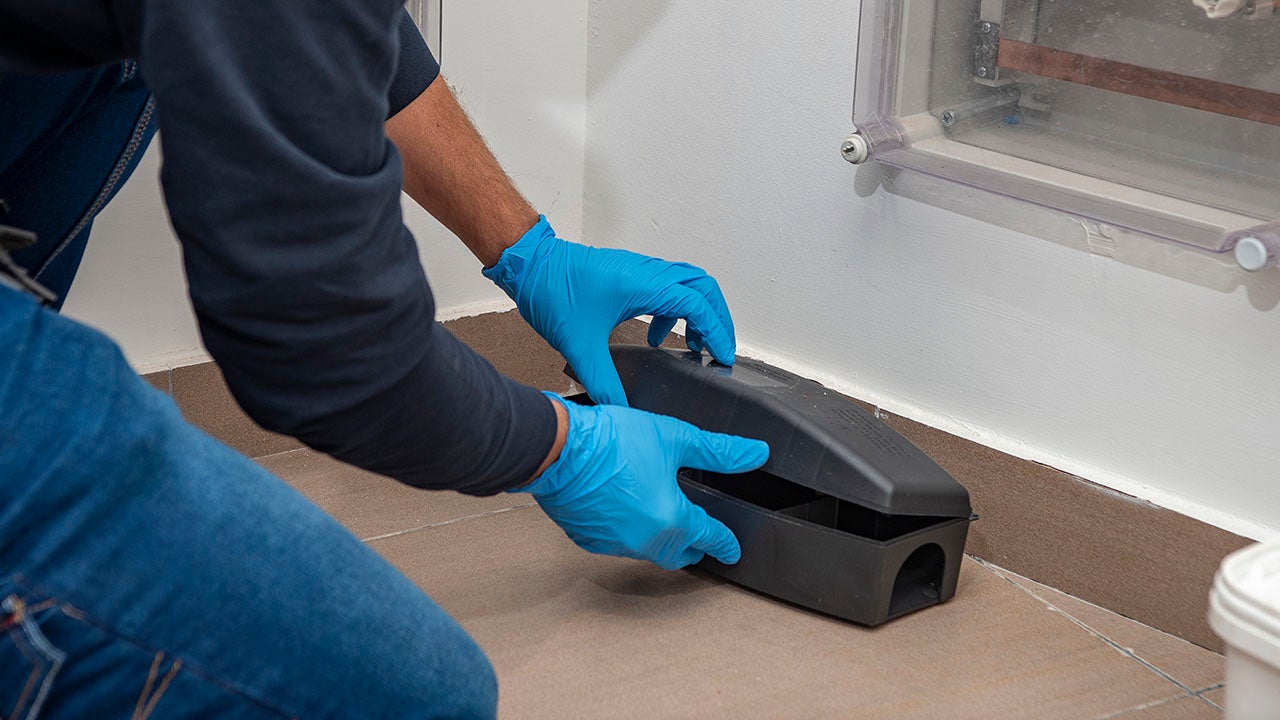When does homeowners insurance cover animal damage?

Key takeaways
- Most homeowners insurance does not cover animal damage, but there are exceptions for accidents such as a deer damaging a fence or a bird breaking a window.
- Potential animal risks depend on where you live. Understanding local wildlife may help you better tailor your coverage and protect your home from damage.
- Damage caused by pets is typically not covered by homeowners insurance policies, though some policies may cover injuries caused to others by a pet.
Animals like rodents, insects and other creatures can cause a lot of damage to your property. While homeowners insurance financially protects you from covered losses like fire and storm damage, in most cases, home insurance policies do not cover losses resulting from animals. For that reason, it’s important to understand your coverage and to be proactive about protecting your home from animal damage.
Homeowners insurance for animal damage: what is and is not covered
Most standard homeowners insurance policies exclude damage from neglect. Because animal and insect infestations can often be avoided with regular pest control treatments, insurers usually consider the damage largely preventable. This typically excludes the damage from your policy coverage. While most animal damage is not covered by homeowners insurance, some perils may be covered if they are sudden and accidental. For example, if a deer suddenly runs through your front yard, breaking part of your fence, this may be covered by your other structures coverage. Similarly, if a large bird flies into your window and cracks it, this may be covered under your dwelling coverage.
How wild animals might damage your home
Wild animals come in all shapes and sizes, as does the damage they can cause. The potential damage animals could cause to your home is largely dependent on where you live. For example, if you live in the southern part of the U.S., where the climate is more mild, you may have to be more aware of termites, but if you have a vacation home in a rural mountainous area, bears may be top of mind. Below we have a list of some common types of animal damage and how you may be able to prevent it.
- Raccoons: These creatures can cause damage if they get into chimneys and attics. They can tear up air ducts and tear and chew through paper insulation, wood and electrical wires. Raccoons will also leave feces and urine, which requires careful, diligent cleaning to prevent the spread of disease. You can prevent raccoon damage by checking crawl spaces frequently and investigating any strange noises in your walls, ceilings or chimney.
- Squirrels: Although squirrels are small, their chewing and nesting may cause damage to your wood, shingles, wiring, plastic and insulation. Checking your home regularly and investigating any strange noises may help prevent squirrel damage, especially if you see them around your property frequently. Homeowners insurance does not cover squirrel damage, despite how common it is, because it’s considered preventable.
- Rodents: Mice and rats typically leave behind droppings to indicate their presence. You may be able to handle a rodent infestation yourself, but if the problem is severe, a professional service may be required. Home services website Angi puts the average cost of rat extermination at $393, but it could exceed $600 if you have a larger home and/or rodent problem.
- Birds: Birds may not look like they could cause damage to your home, but they can. Woodpeckers, for example, can damage siding and potentially expose your home to the elements. If a bird gets inside, their feces and urine could also pose health problems, and they could damage insulation or other materials to make nests.
- Large wild animals: As large animals like deer and bears are more noticeable, the damage they cause is typically less gradual than damage from an insect or rodent infestation. For this reason, large animal damage like broken fences, windows or siding may be covered by your insurance company. If you live in a more rural area where large wild animals are a concern, you may want to speak with your insurer to learn what damage is and isn’t covered.
How insects might damage your home
Insects may be some of the smallest animals, but the damage they can cause over time could be devastating. According to pest control giant Orkin, termites alone cost Americans $5 billion each year in preventative measures and repair costs. Structural damage is a big concern with certain insects, and unfortunately, most insurance companies exclude damage from pests like termites.
- Bedbugs: Although they do not pose a severe threat to the structure of your home, bedbugs can wreak havoc on your personal belongings. An infestation of bedbugs is generally considered a maintenance issue, with heat treatment being one of the few ways to get rid of them. You may be able to prevent the spread of bedbugs in your home by thoroughly washing any linens, furniture or other fabric items before bringing them into your home. For professional remediation, a heavy infestation could cost up to $400 per bedroom.
- Ants: Carpenter ants are most common in the northeastern states, and the damage they cause can be mistaken for termite damage. Carpenter ants eat through soggy wood to make their nests and may indicate a larger water leak. Damage from carpenter ants is usually not covered by homeowners insurance, but if carpenter ants cause a tree to fall on your home, your dwelling coverage may kick in to help repair the damage.
- Termites: Termites cause billions of dollars in structural damage in the U.S. each year. Fortunately, being vigilant and taking some preventative measures may help you avoid a termite infestation. Maintaining good drainage on your property, keeping wood piles and debris away from your home, fixing leaks promptly and clearing shrubs and plants away from the side of your home may all help prevent termite damage in your home.
Is pet damage covered by homeowners insurance?
Unfortunately, some of the most common instances of animal damage are the result of the animals we bring into our homes willingly. Pets like dogs and cats can easily cause damage to structures and personal property. However, damage from pets is excluded from standard homeowners insurance policies. So if your new puppy chews through a baseboard, you will likely have to pay for the damage out of pocket.
In contrast, the personal liability part of your home insurance policy may cover certain pet-related issues. If your pet bites someone who is not a household member and causes injuries, your liability insurance may cover their medical bills. If they sue you, the legal fees and representation could be covered, as well.
Read your homeowners insurance policy carefully, as there could be restrictions or exclusions for specific pets or breeds. This is why most home insurance companies require you to disclose any pets you own when you apply for coverage. If you own a pet, you might consider purchasing extra liability protection with a personal umbrella policy.
How can I prevent animal damage in my home?
While you can’t get homeowners insurance for animal damage, there’s a lot you can do to avoid expenses related to this type of problem. In general, being proactive is one of the best ways to prevent animal damage in your home. There are a number of steps you can take to protect your home from animal damage and limit your risk of attracting potentially damaging pests:
- Secure access points: Seal off attics, crawl spaces, chimneys and any other potential entry points to keep animals from getting inside and causing damage
- Limit standing water: Bugs and pests are drawn to standing water, so check your home regularly for areas where water might be gathering and address the issue.
- Perform regular inspections and proactive protection: Monitoring your home, including attics and crawl spaces, for signs of animal activity can help you identify issues early and limit the scope of damage.
- Hire professional pest control: Especially if you’ve dealt with animal infestations in the past, you might consider hiring a pest control company for comprehensive treatment of your property.
Frequently asked questions
Why we ask for feedback Your feedback helps us improve our content and services. It takes less than a minute to complete.
Your responses are anonymous and will only be used for improving our website.
You may also like

Does homeowners insurance cover roof leaks?

When to file a home insurance claim and how to do it

How to get homeowners insurance after nonrenewal

Does home insurance cover rat damage?


